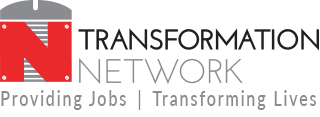Facing Modern Day Drug Challenges in Manufacturing

The American drug crisis has grown to startling levels in the past several years, with drug overdoses killing more people in 2016 than the total number of U.S. soldiers killed during the Vietnam War. Aside from the incalculable pain and suffering resulting from addiction and loss of life are the enormous economic costs. According to The White House Council of Economic Advisers (CEA), the U.S. spent 2.8% of its GDP on the opioid crisis alone in 2015.
How do these sobering numbers impact manufacturing?
The MAPI Foundation conducted a study to analyze the relationship between manufacturing and the drug crisis in manufacturing-centric counties, finding a concerning level of overlap between the profiles of manufacturing workers and opioid overdose deaths. In 2016, manufacturing was 71% male and 81% white, and drug overdose deaths were 67% male and 79% white. States like Ohio, which represents almost 5% of total U.S. manufacturing output and is home to four of the counties with the highest overdose deaths (Cuyahoga, Franklin, Hamilton, and Montgomery), find themselves especially at risk for losing future productivity from premature death. Overall, nearly one in twenty U.S. manufacturing employees will misuse a prescription opioid this year, making them vulnerable to addiction.
How You Can Help
Educate Yourself and your Employees
The tragedy of opioid addiction is that it often happens unintentionally, simply because of a lack of education about the risks. Patients prescribed a painkiller (often for a work-related injury) don’t realize how easily they can become hooked on a pill that was intended to help them. Employee wellness programs should raise awareness about the risks of prescription opioids, instruct how to use pain medication safely, and communicate the availability of resources, such as a confidential employee assistance program.
Document Your Observations
You should always approach concerns of substance abuse sensitively and cautiously, as unfounded accusations of substance abuse could not only hurt or embarrass your employee, but become the basis for legal action. Focus on collecting measurable evidence, such as absenteeism, tardiness, or decreased work performance. Then set up a meeting during which you can discuss issues that may be causing difficulties at work, including addiction, if your employee chooses to bring it up. Focus your attention on performance and expectations, and leave the ball in their court.
Stage an Intervention
When an employee shows up to work clearly impaired, it may be time to plan an intervention, led by a trained professional. During the intervention, you and your employee’s coworkers confront the employee and encourage them to seek professional help for substance abuse.
If drug use at any time creates an unsafe environment as the result of erratic or disruptive behavior, restrict the employee’s duties, especially if dangerous manufacturing equipment is involved. Refer the employee to your company’s health unit or EAP. Arrange for them to get a safe ride home, if necessary. Your primary responsibility is to protect not only the employee, but the rest of the plant as well.
Are you dealing with too many no shows? Do you need to find more employees that you can count on? Visit our site to see how we can help you hire and retain strong workers.
Corporate Headquarters
1661 Cleveland Ave.
Ashland, OH 44805
419-207-1188
We are a 501 (c) 3 non-profit organization.
Celebrating over 20 years of service
